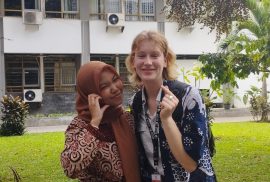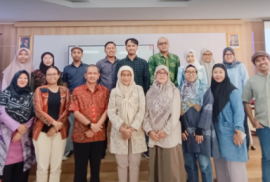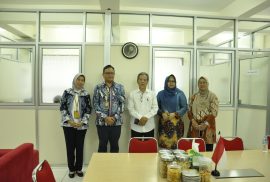The English Studies Program, Faculty of Cultural Sciences, Universitas Gadjah Mada, is pleased to announce the names of students who have been officially selected to join the prestigious RWS Internship Program – Batch 2025.
After a rigorous selection process and thorough evaluation of academic performance, motivation, and readiness for professional development, the following students have been accepted:
- Adeline Diva Hanjani
- Nurainina Berliani Natanda
- Bathari Sekar Dewangga
We are especially delighted to highlight that this marks the second consecutive time that students from the English Studies Program, Faculty of Cultural Sciences, Universitas Gadjah Mada, have successfully secured all available internship slots at RWS, an impressive achievement that reflects their academic excellence, professionalism, and global readiness.
These outstanding students will represent the English Studies Program in their internship with RWS, a leading global provider of language services and technology solutions. During their internship, they will gain invaluable experience in the field of language, translation, and content management in a professional international setting.
We extend our warmest congratulations to the selected interns and wish them a fruitful and inspiring journey. This achievement reflects their hard work, commitment, and potential to grow as globally competent graduates.






